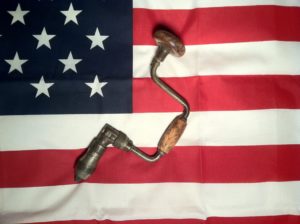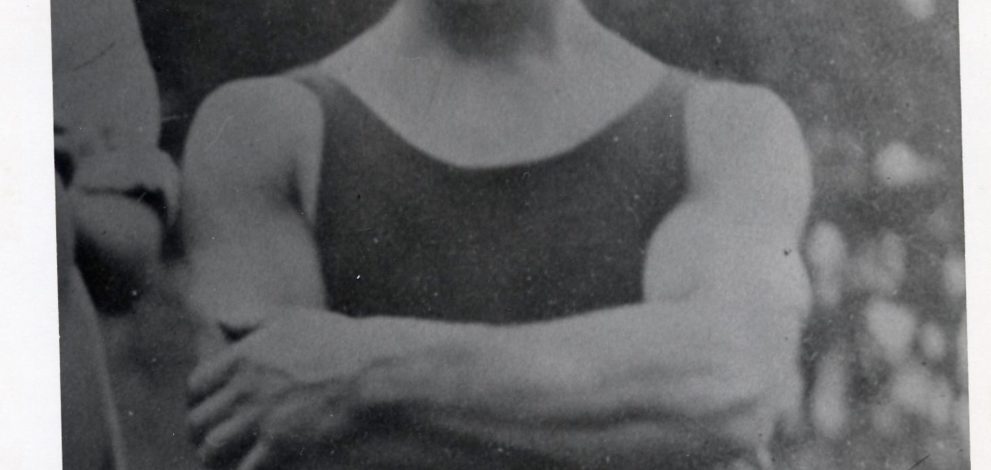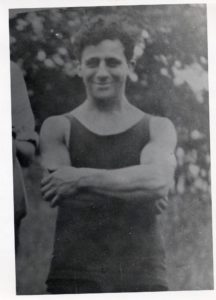My beloved maternal grandfather, Arthur, was born in Roxbury, Massachusetts in 1901. As a boy, his Jewish, Lithuanian-born parents moved him and the rest of their eight children to The Bronx, a borough of New York City.
My grandfather finished high school, and went on to become a sheet metal worker. He began as a young apprentice, learned his trade, and eventually became a master craftsman. Grandpa Artie worked on the Empire State Building when it was being built, plying his trade on the sheet metal heating ducts. He helped build the tallest building in the world.
The Empire State Building was completed in 1931, and it is still standing 85 years later. (The Kingdome in Seattle, for instance, was torn down twenty-six years after it was built.) The reason the Empire State Building is still standing is that it was built by skilled workers with quality tools, using good materials, and following proper and proven methods.
Everything my grandfather did was quality. He worked as though he personally signed each piece of metal or wood he used. (In Medieval times, the stonemasons who built the great cathedrals of Europe placed their personal mark upon each stone they had hewn.) Grandpa always counseled me to use screws rather than nails whenever possible. “Unlike nails, screws can be removed without damaging the wood, and they hold better.”) And you drilled a small pilot hole before you put in a screw, so that it went in straight. After my grandfather retired, he and my grandmother moved near us in New Jersey, and my grandfather frequently did work around our house. (My dad used to joke that if a bomb were to hit our house, only the parts my grandfather had built would remain standing.)
Grandpa Artie built a workbench in our basement, then brought over his tools, many in toolboxes he made himself. Some of his tools were odd-looking. Grandpa explained that if a task had to be done, and there was no tool available, he and his workmates would modify an existing tool to create the tool needed to get the job done. Of course, he would save the newly devised tool in case the same need should arise again.
My grandfather was a quiet, easygoing, loving man. He was a bit over five feet tall, and had biceps that would put Popeye to shame. I remember watching him walk to work, a metal toolbox in each hand, along with the banana sandwich Grandma made for his lunch lovingly tucked into a brown paper bag. I’d bet anything that Grandpa brought that paper bag home so he could use it again and again.
My grandparents were the American-born children of immigrants who came to America for a better life. Tired of living in Eastern Europe among the Russian and Polish thugs whose main form of entertainment seemed to be burning down Jewish villages, and raping and murdering their way across the countryside, my great-grandparents set off for America. As a young couple my grandparents survived the Great Depression, whence came the seeds of the greatest sin known to anyone in our family: waste.
Grandpa kept extra drill bits in metal coffee cans. (I have his blue and orange “Maxwell House” can on my desk.) He kept extra nails, screws, nuts, and bolts, and even more drill bits, in old metal Johnson & Johnson “Band-Aid” boxes, and small corners of sheet metal (shims?) in very small “Cocomalt” cans (“A Delicious Food Drink” “Chocolate Flavor” Davis Baking Powder Co. Hoboken, NJ), which I still have today, among the various repurposed containers he would use. It seemed that Grandpa never threw anything away if it could be used again.
I remember a particular occasion when after moving to Los Angeles to begin my career in film production, during a return visit to my parents’ New Jersey home, I went down to the basement and reacquainted myself with the treasure trove of tools my grandfather left behind when he passed away. There was no urge to get rid of the tools, and they often came in handy. I came upon my grandfather’s old drill, the kind with the wooden handles, which you cranked by hand. I suddenly became overwhelmed, a flood of tears clouding my view, as I realized that I was able to grow up in a five-bedroom house in the suburbs, go to college without paying a dime myself, and pursue a dream of moving to Hollywood to make movies, on the backs of my grandparents and parents whose hard work to survive precluded any consideration of embarking on a self-indulgent fantasy career. Their selfless labor and frugal existence were the saplings from which grew the sturdy trees that bore the fruits of my relatively luxurious childhood.
I’ve taken some teasing, not all of it good natured, about some habits I’ve picked up from my grandparents. (I even credit Native American Indians and the Amish for inspiring me as well.) I re-use old salad dressing bottles for my bedside water. I store my ice tea in glass olive jars, which I occasionally toss into my briefcase if I have to hit the road before breakfast. And I have a ton of rags under the kitchen sink that used to be clothes I wore. I also begged my parents, when they were moving to California, to put Grandpa’s tools on the moving truck. I keep them now as family museum pieces, amulets, talismans even, of a bygone era from which the roots of my personal ethos took purchase.
While most people get a new car every two to four years, I’m pushing 200,000 on my nineteen-year-old Ford Explorer. I used my old 19” Zenith television for about thirty years before a buddy of mine insisted I take one of his Sony castoffs, and I bought my briefcase (messenger bag) back in 1986 when I started my job at Disney. It’s been repaired several times over the years (by the nearby Armenian shoemaker from Greece), but I have still not found anything that could adequately replace it.
It’s sad to me that many people I know leave half of their food on their plates when they go to a restaurant, that 120,000 miles ago I had relatives telling me I ought to junk my car and get new one, and that a fraction of my former students could even be bothered to write their names on their papers, would even dream of cleaning up after themselves, or even understood the point of engaging in anything that even remotely resembled quality and authenticity.
Now it seems we are bombarded on a daily basis by reports of monumental government waste, an epidemic of useless and dishonest politicians, junk science keeping people from vaccinating their children, homophobia, campus rape, racism in law enforcement, exceedingly mindless and violent entertainment, and s urly celebrities inspiring young Americans to live the “thug life.”
urly celebrities inspiring young Americans to live the “thug life.”
This is not what my grandfather and his generation thought they were building with their own hands. Do we, as the builders of today, have what it takes to craft a future that is worthy of our past? Can we come together for the common good and make decisions that will help us all, rather than our own special “interest group”? I think we can. We have the tools.
And I still have Grandpa Artie’s tools to remind me.
By Keith Douglas Kramer
Photo of Grandpa Artie – Photographer unknown
Photo of Drill & Flag by Keith Douglas Kramer




Thank you. The memories you have of your grandpa brought a wave of memories back to me. He was the sweetest, gentlest and kindest man. He reminded me a lot of my own father 🙂
There is so much more you could write from this “tree trunk.” There are so many branches and stories. I want to hear more!
Thank you, Susan, as always, for reading my blog and sharing your thoughts.
I have long said that if I ever had two sons, I would name them Arthur and Harold.
I always adored your father, my beloved Uncle Harold. He always reminded me of my grandfather. Especially after my grandfather passed away, your father gave me that warm , loving feeling I used to get from Grandpa Artie.
All my best. xoxo
Your grandpa reminds me of my husband who is a machinist, though he calls himself “The Machinist.” He has Amish in him, and tools just as you described your grandpa had. Nice to hear some people still appreciate people of the trades, and don’t have to have the latest gadgets to survive. Wonderful story!
Thank you for reading and for sharing your comments, Marguerite. All my best!
Good Lord, again powerful and profound. We all hearken back to a day where politician were nobel, prices were sane, and we knew our neighbors.
We forget that we have heros and angels amongst us. It is the quiet dignity of the toil of our parents. . .fighting rush hour traffic to go to a job that they hate. . .because they have children at home that need to eat.
Thank you Brother Keith, you reminded me of what a HERO looks like!